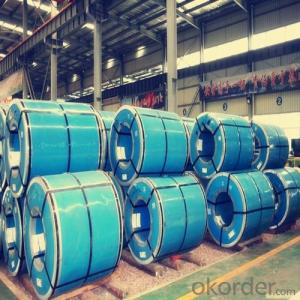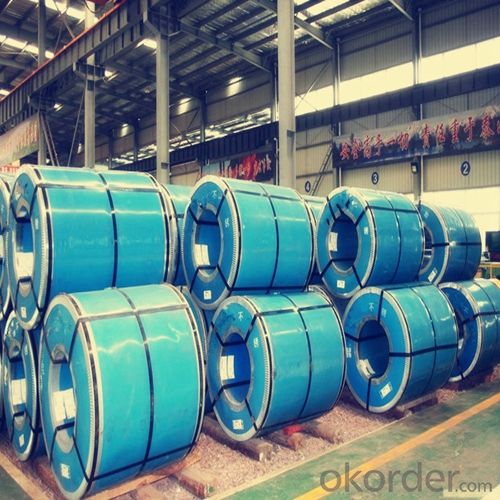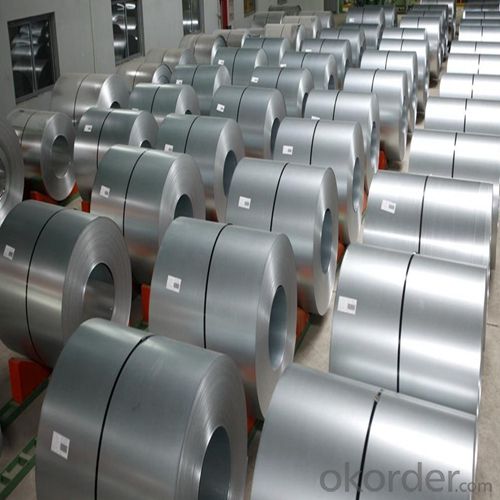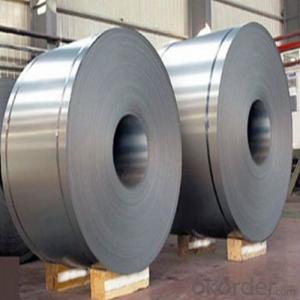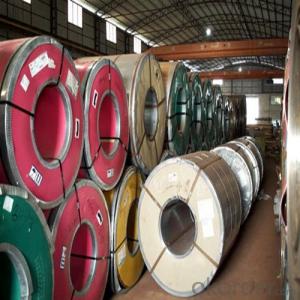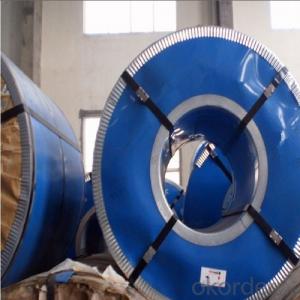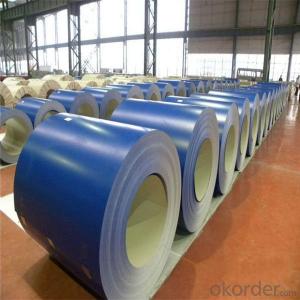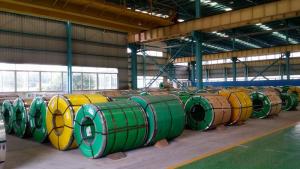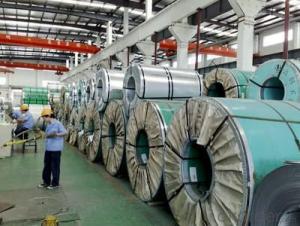Stainless Steel Coil Grade: 400 Series430
- Loading Port:
- Fuzhou
- Payment Terms:
- TT OR LC
- Min Order Qty:
- 100 m.t.
- Supply Capability:
- 5000 m.t./month
OKorder Service Pledge
OKorder Financial Service
You Might Also Like
1.Structure of Stainless Steel Coil:
Stainless steel coil is a production which not easy rust, acid resistance and corrosion resistance, Stainless steel coil is a new kind of Austenite stainless steel by used Mn, N replace Ni. so it is widely used in light industry, heavy industry, daily necessities and the decoration industry. Stainless steel coil has good corrosion resistance and hot / cold processing performance, instead of stainless steel products for used in the not high of corrosive environment, such as indoor, inland city outdoor etc.
2.Main Features of the Stainless steel coil:
1) High Quality: Using Latest automated control equipment to ensure the quality
2) Best Price: With most automated equipments to ensure our price is lower than the market
3) Fast Delivery: The delivery date within 20 das after get your order
4) Best Service: Our after-sell service team will help you to slove all the problems about the order
3. 304 Stainless steel coil Images
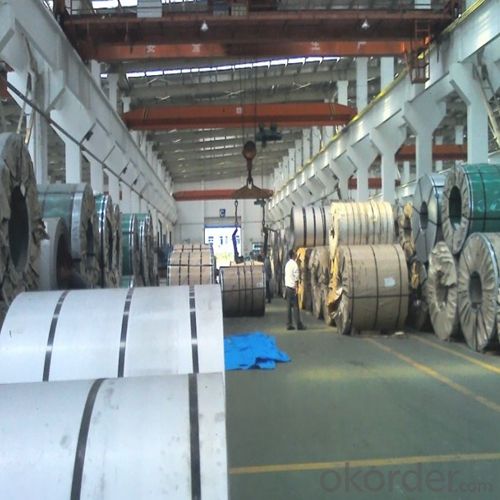
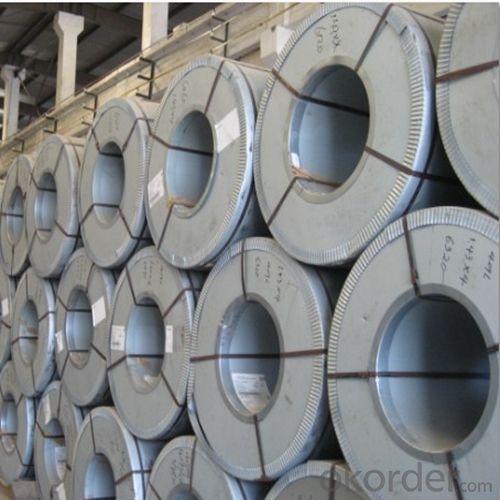
4. 304 Stainless steel coil Specification
Product name: 304 Stainless Steel Coil
Thickness: 0.2mm to 1.5mm
Technical: Cold Rolled
Width: 10mm to 1240mm
Type: 200 Series
Length: As customer's requested
Standard: JIS, SUS
Finish: BA, 2B, 8K, NO.3, NO.4, HL
MOQ: 100 MT
Ship Term: FOB Shenzhen port or CNF import port
Delivery Time: 15 to 20 day after the receive the deposit or LC
Packaging: By wooden pallet, wooden case or according to customer's request
5.FAQ
We have organized several common questions for our clients,may help you sincerely:
1) How to guarantee the quality of the products?
2) We have established the international advanced quality management system,every link from raw material to final product we have strict quality test;We resolutely put an end to unqualified products flowing into the market. At the same time, we will provide necessary follow-up service assurance.
- Q: I need a machine which can produce steel pipes, but I don't know where to look...If you want me to state dimensions etc. just say...Thanks :)
- I'll answer both those questions. Your first question is: Who can I buy a Steel Pipe Making Machine? To which I reply: anyone. I'd put great consideration on the age of the person you are giving this machine to, and perhaps their physical ability. Cripples don't work well with steel pipes. Unless you are...beating them with one. Second question is: Where can I buy a Steel Pipe Making Machine? My reply: OKorder, or Steel Pipe Makers Incorporated. You could probably just steal one out of their factories. They have billions, and the actual machines are no bigger than...a bus or two. Just pop one in your backpack on the way out. But honestly, I don't know where to get a steel pipe making machine. BUT! I do know where to get a steel pipe making machine making machine. Ask santa. (BTW: Why do you need the steel pipes? I smell conspiracy!)
- Q: How are steel coils used in the production of steel hooks?
- Steel coils are used in the production of steel hooks as they provide the raw material needed for shaping, forming, and manufacturing the hooks. The coils are unwound, processed, and then transformed into the desired shape and size to create the steel hooks.
- Q: How are steel coils inspected for flatness variations?
- Steel coils are inspected for flatness variations using specialized equipment such as laser or optical scanning systems. These systems measure the surface profile of the coil and identify any deviations from the desired flatness. The data collected is then analyzed to determine the extent of the variations and whether they meet the required tolerances.
- Q: How are steel coils used in the production of industrial valves?
- Steel coils are used in the production of industrial valves as they are typically cut and formed into various components, such as valve bodies and stems. The coils provide a strong and durable material for the valves, ensuring their reliability and longevity in industrial applications.
- Q: Is there any noticable or perceived difference between smoking out of a pipe with a brass screen and a stainless steel screen?
- Stainless Steel Pipe Screens
- Q: How are steel coils used in the production of rail tracks?
- Steel coils are used in the production of rail tracks as they are processed and shaped into rails. These coils are transformed into long, straight sections of steel that form the main structure of the track. This process involves cutting, bending, and welding the coils to create the desired rail shape and dimensions. The resulting rails are then installed on rail beds to provide a durable and reliable foundation for trains to run on.
- Q: Can I ever get my classical guitar reinforced so it can have steel strings on it?
- describes the differences in construction of classical nylon string guitars and steel string guitars--like I said, it would involve reconstruction of more than just a neck
- Q: What are the benefits of using steel coils in the manufacturing of pipes?
- Using steel coils in the manufacturing of pipes has several advantages: 1. Strength and durability: Steel is renowned for its strength and durability, making it an ideal material for pipes. By utilizing steel coils, pipes are provided with a solid foundation, enabling them to withstand high-pressure applications and resist damage from external factors such as impact or corrosion. This strength and durability increase the lifespan of the pipes, reducing the need for frequent replacements. 2. Customizability: Steel coils offer a high degree of flexibility in terms of customization and design. They can be easily formed into various pipe shapes and sizes, allowing manufacturers to produce pipes that meet specific project requirements. This flexibility also allows for the production of seamless pipes, which have superior structural integrity and a reduced risk of leakage. 3. Excellent thermal conductivity: Steel possesses excellent thermal conductivity, meaning it efficiently transfers heat or cold. This property is essential for pipes used in industries such as oil and gas, where temperature control is crucial. By utilizing steel coils, pipes can effectively handle extreme temperatures, preventing any damage to the pipes or the substances flowing through them. 4. Cost-effectiveness: Steel coils can be produced in large quantities, resulting in economies of scale and lower production costs. This cost-effectiveness benefits both manufacturers and consumers, as it helps keep the overall cost of pipes down. Additionally, the durability of steel pipes reduces the need for frequent repairs or replacements, resulting in long-term cost savings. 5. Enhanced corrosion resistance: Steel coils can be coated with protective layers to enhance their resistance to corrosion. This corrosion resistance is vital in applications where pipes come into contact with corrosive substances or are exposed to harsh environmental conditions. By utilizing steel coils with appropriate coatings, manufacturers can ensure that their pipes have a longer lifespan and maintain their structural integrity even under challenging circumstances. In conclusion, the utilization of steel coils in pipe manufacturing provides numerous benefits, including strength, customizability, thermal resistance, cost-effectiveness, and corrosion resistance. These advantages make steel coils the preferred choice for many industries that rely on durable and efficient piping systems.
- Q: I wanted to know what is steel fabricating?
- Steel Fabricating/or Steel Fabricators is just a fancy way of saying that they sell steel products and a variety of related services. Thomas steel products has a wide range of steel products and services, from Windsor Republic Door Dist, Tie Wire, Steel Doors Frames, Snap Ties, S Parker Hardware Distributor, Reinforcing Steel Detail Drawings Avail, Rebar Fabrication, o_O.
- Q: any one have an opinion? i've heard steel cut oatmeal is better for you...
- Old fashioned is the whole oat - the steel cut is oats all cut up. The steel cut is more mushy when prepared while the old fashioned has that good thick texture and feel to it.
Send your message to us
Stainless Steel Coil Grade: 400 Series430
- Loading Port:
- Fuzhou
- Payment Terms:
- TT OR LC
- Min Order Qty:
- 100 m.t.
- Supply Capability:
- 5000 m.t./month
OKorder Service Pledge
OKorder Financial Service
Similar products
Hot products
Hot Searches
Related keywords
